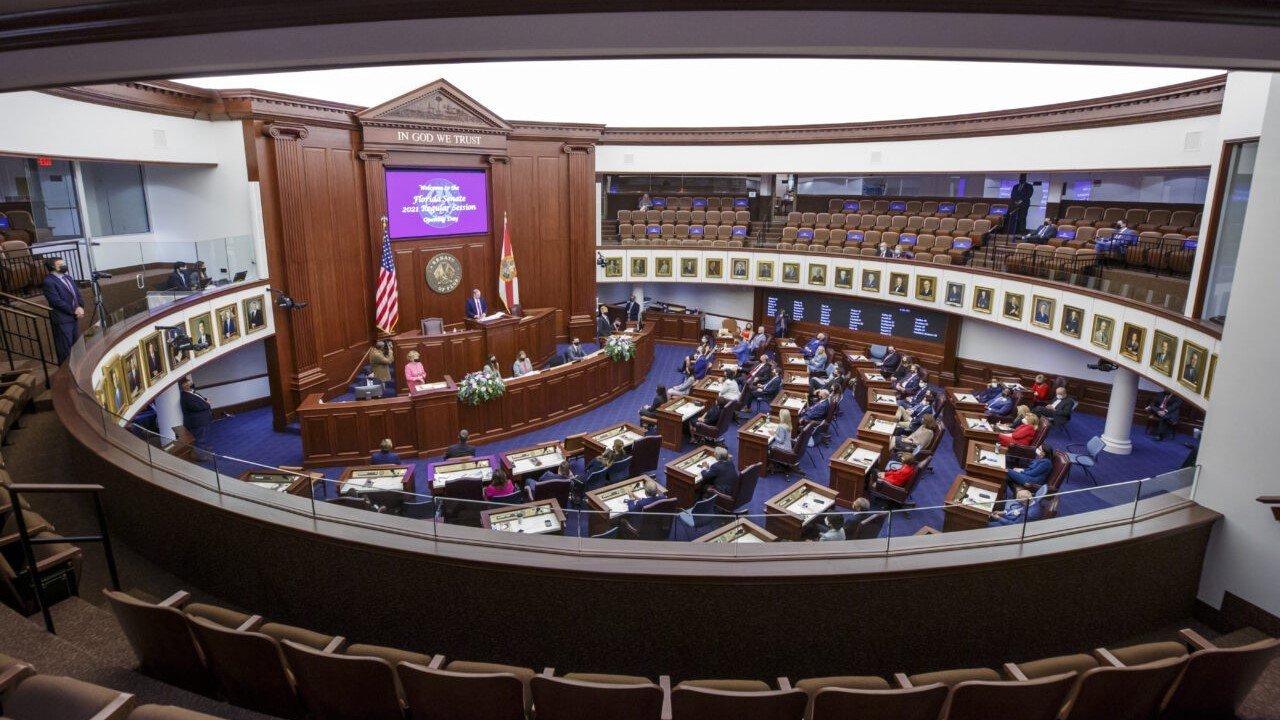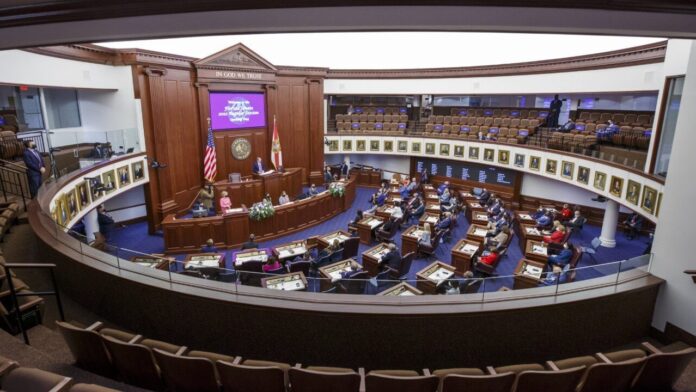
In a bid to push for a gambling expansion ahead of the 2024 legislative session, Florida State Senator Blaise Ingoglia filed a bill in the state senate on Thursday, allowing for the relocation of gambling permits.
The bill is being viewed as controversial at the local level for a number of reasons. Opponents are questioning whether the bill is intended to introduce new casinos to Miami-Dade County, as it allows gaming permit holders to relocate their permits. Specifically, the bill outlines that those with permits for greyhound dog racing and authorization for casino activities can transfer their operation of “all pari-mutuel wagering and gaming activities” to a location within a 30-mile radius.
The provisions and language of the legislation have raised concerns locally, particularly regarding the potential impact on Miami Beach. “It’s an existential threat to our community,” said Dan Gelber, Former mayor of Miami Beach and a longtime anti-gaming advocate.
State Senator Jason Pizzo, who represents parts of Miami-Dade and Broward counties, has announced his intention to oppose the bill. Quoted by the Miami Herald, Pizzo bluntly expressed: “The bill sucks, and I look forward to it dying.”
Staunch anti-gambling activist Norman Braman too has pledged to vehemently oppose the expansion of casino gambling, stating that he will do so “by all means necessary” to prevent Miami from evolving into “another Las Vegas.”
The proposed bill, called Pari-mutuel Permitholders, is at loggerheads with opponents who have actively worked to prevent the introduction of gambling to new areas in South Florida. This opposition has included efforts to block a casino at the Fontainebleau Hotel and Resort in Miami Beach.
In 2021, Governor Ron DeSantis negotiated a $500 million deal with the Seminole Tribe of Florida, granting the tribe the ability to offer online sports betting statewide. As part of the agreement, the tribe committed not to oppose the establishment of new casinos located more than 15 miles from the tribe’s gambling hubs in the Hollywood area.
Some perceived this provision as a gesture favoring Florida Republicans’ alignment with former US President Donald Trump and his golf resort in Doral, as well as benefiting Jeffrey Soffer, the prominent real estate tycoon whose family possesses the Fontainebleau. Over the years, Soffer has been pursuing the transfer of a gambling permit from the Hallandale Beach-based Big Easy Casino to the Fontainebleau. Notably, both Doral and the Fontainebleau are situated just slightly more than 15 miles from the Tribe’s Hollywood casino.
While Ingoglia’s proposed bill doesn’t explicitly reference the Fontainebleau or Trump Doral, it echoes the language found in the 2021 deal. Similar to the previous agreement, his bill also incorporates a provision stipulating that gaming permit holders are prohibited from relocating their permits within a 15-mile radius of any Seminole Tribe gaming facility in Broward County.
The bill also calls for deleting a requirement that certain permitholders show that their permits have not been disapproved or recalled at a later election when submitting subsequent annual applications to the Florida Gaming Control Commission. Governor Ron DeSantis reappointed attorney Julie Imanuel Brown as the commissioner of the commission earlier this year in May.
In another controversial aspect, the proposed legislation states that transfer of permits will be allowed irrespective of any contradictory local government regulations. Almost 70% of voters in the November 2018 election supported amending the Florida constitution to prohibit dog racing in 2020 and the Miami Beach City Commission voted in 2017 to ban casinos and other gambling facilities.
In 2021, the Doral City Council approved a similar measure, banning casinos and gambling unless approved by residents in a referendum. A 2018 constitutional amendment approved in a statewide referendum gave voters the exclusive right to authorize casino gambling expansions, including slot machines and electronic betting games. The Seminole Tribe backed the amendment at the time.
The bill also mandates that a slot machine gaming area of a relocated pari-mutuel facility “be at the location for which the relocation was approved.” This provision has raised concerns at the local level that the bill might limit the authority of municipalities. The proposed law could potentially exempt relocated pari-mutuel facilities from municipal restrictions on the establishment of cardrooms.
“The bill appears to be an attempt to deliver casinos over the objection of communities and notwithstanding Florida’s constitution. If the Legislature goes along with (the bill) and the courts fail to do their job, there’s no way this will simply be a single casino,” Gelber warned.
A companion bill has not yet been filed in the Florida House.
Original article: https://www.yogonet.com/international/noticias/2023/12/22/70222-florida-gambling-bill-sparks-miamidade-casino-expansion-debate














